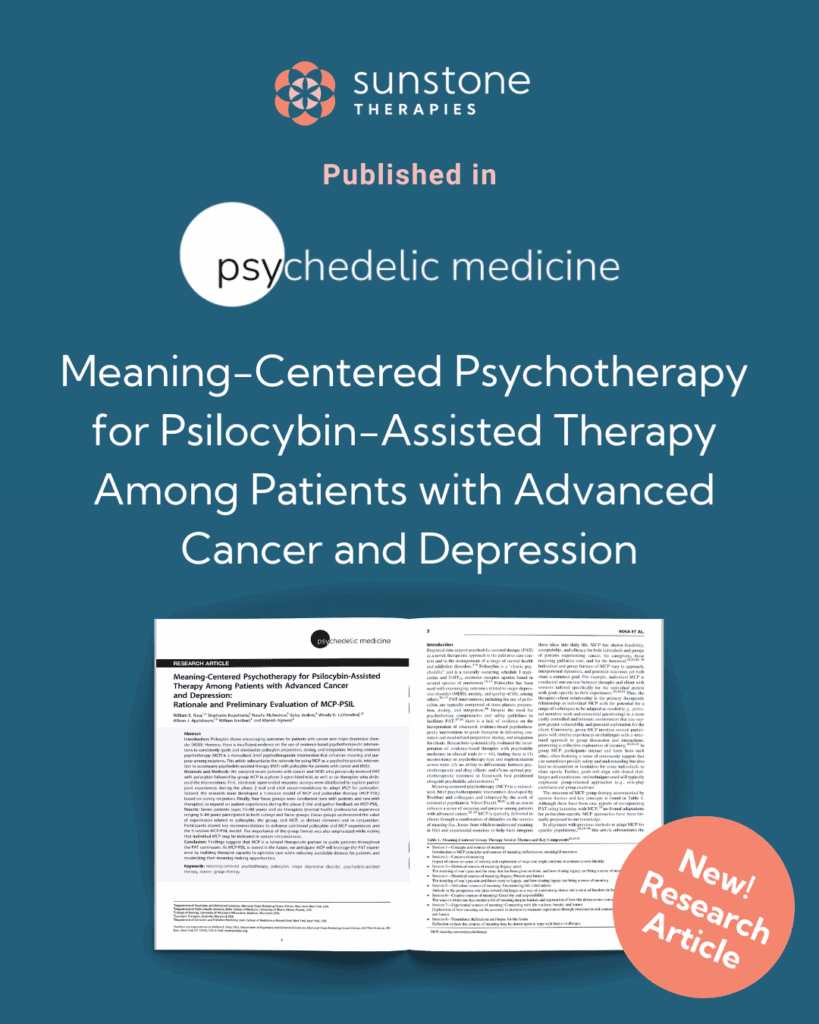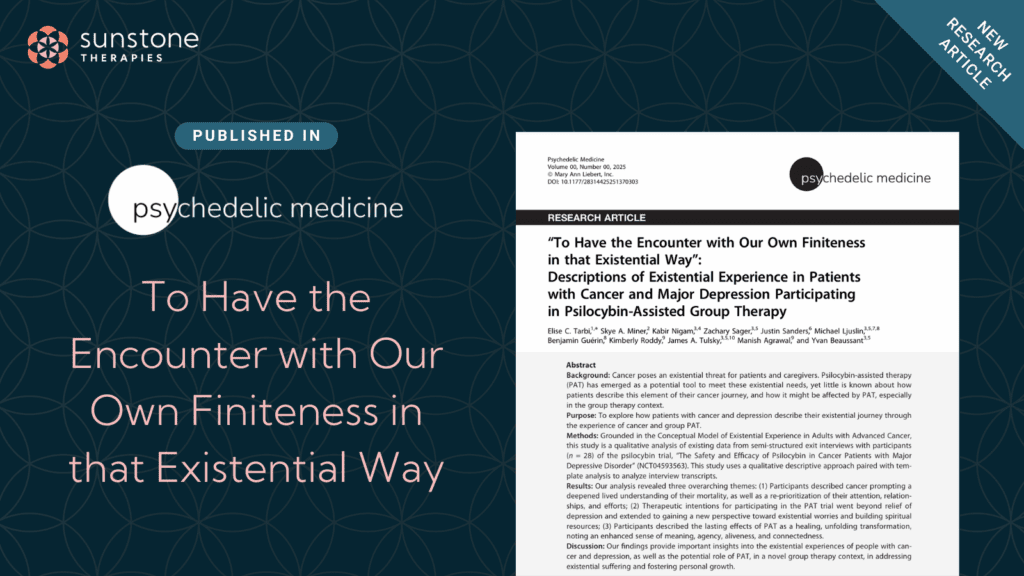August 25, 2025
Sunstone’s pioneering psilocybin study for patients with cancer and depression laid the groundwork and inspired six research studies.
Sunstone is pleased to announce the publication of the latest paper, “Meaning-Centered Psychotherapy for Psilocybin-Assisted Therapy Among Patients with Advanced Cancer and Depression: Rationale and Preliminary Evaluation of MCP-PSIL,” in Psychedelic Medicine. This work explores an evidence based approach used for cancer patients in psilocybin-assisted therapy (PAT).
This paper is the result of a collaboration led by Dr. Billy Rosa of Memorial Sloan Kettering Cancer Center, which included our CEO, Dr. Manish Agrawal, and therapist Betsy Jenkins, LCPC. The patient and study data were taken from Sunstone Therapies’ investigator-initiated trial (IIT), “The Safety and Efficacy of Psilocybin Therapy in Patients with Cancer and Major Depressive Disorder,” published in The Journal of Clinical Oncology, June 2022.
“Connecting to one’s identity, purpose, mortality and legacy within the context of psychedelic experiences seems incredibly powerful. At the end of the day, we want to give people a stronger sense of who they are and what they want to be on this earth.
Because that’s healing.
People can feel very lost and adrift, confused, and in pain when faced with the trauma of a life-threatening illness like cancer. The shock of diagnosis often evolves into a sense of a deep appreciation for life and a quest for meaning: who am I, and why am I here? Meaning-centered psychotherapy (MCP) in this context provides a very helpful, beneficial lens and perspective. MCP-PSIL can offer an effective and replicable intervention for psychedelic-assisted therapy.”
– Betsy Jenkins, LCPC, Sunstone Therapist

Based on preliminary findings from Sunstone’s IIT, the team developed a 5-session model, MCP-PSIL, which uses Meaning-Centered Psychotherapy (MCP) as a therapeutic partner for PAT. The findings suggest that MCP is a natural fit for this kind of therapy, helping therapists build capacity and empowering patients to maximize their opportunities for meaning-making while reducing distress.


